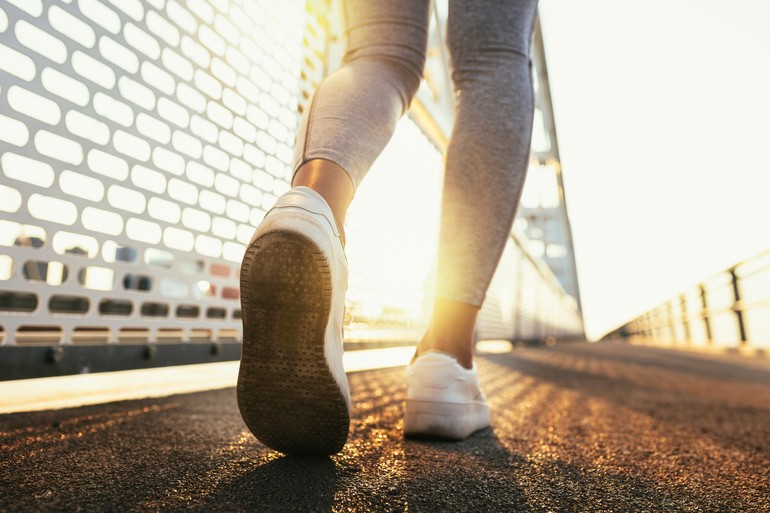The Centers for Advanced Orthopaedics is redefining the way musculoskeletal care is delivered across the region with locations throughout Maryland, DC, Virginia and Pennsylvania.
What’s Causing My Heel Pain After Running?

Running is one of the most common and simplest forms of exercise, and millions of people lace up their running shoes and hit the pavement or the treadmill on a regular basis. For a small percentage of these runners, they experience pain or discomfort in the heel area either during their run or following its completion. Not only can this heel pain be uncomfortable, but it can actually make you less likely to get regular exercise, which can be detrimental to your overall health.
So if you are experiencing heel pain when running, what could be causing this issue? And more importantly, how can you treat the problem? Below, we take a closer look at common causes of heel pain after running, and we explore some treatment options.
Causes Of Heel Pain When Running
Heel pain during or after a run can be caused by a few different issues, but here’s a look at some of the most common causes:
- Plantar Fasciitis - Plantar fasciitis is the most common cause of heel discomfort after running. Your plantar fascia is a thick band of tissue that connects your heel to the ball of your foot. Due to overuse or repetitive stress, this tissue can become inflamed, damaged or torn, which can lead to a lot of uncomfortable symptoms in the heel area, like pain, stiffness and swelling. Because running involves repetitive stress on the heel area, it’s not uncommon for runners to suffer from plantar fasciitis. Treatment typically involves rest or activity avoidance, anti-inflammatory medications, physical therapy and gentle stretching routines. Surgery can help to address a severely torn plantar fascia, but most people will find relief through conservative techniques.
- Arch Issues - Your arch helps to disperse the stress and shock of the running action, and if you have abnormal arches, you may be more prone to heel pain after running. Arches that are too high or too low will mean that certain areas of the foot will handle more strain than other areas, and over time the repetitive strain that’s exerted while running can break down tissues in your heel or lead to the formation of bone spurs.
- Poor Foot Strike Pattern - Some people run with a heel-strike pattern, while others run with a forefoot-strike pattern. You’ll hear different providers recommend different techniques, but oftentimes the consensus is to run with a foot-strike pattern that’s comfortable to you. That said, if you run with a heel-strike pattern, land hard on your feet and have other biomechanical issues, you may deal with heel pain after a run. Our team of foot specialists can help to correct these biomechanical issues and set you up with a physical therapy routine to put an end to your heel discomfort.
- Being Overweight - Don’t get us wrong, it’s great that you want to run if you are overweight or obese, but you need to be a little more mindful about how you approach the activity. If you’re carrying extra weight, your feet are going to handle more stress every time you land. This can lead to heel pad inflammation or damage, especially if you increase your activity level too quickly. Slowly build up your distance or duration so that you don’t overload your feet until they are stronger and more acclimated to your running routine. As has been the theme with this blog, overstressing the heel area can lead to pain, and it can be easier to overstress the area if you are carrying a little extra weight.
- Achilles Tendonitis - A final potential cause of heel discomfort after running is Achilles Tendonitis. Overstress on the Achilles tendon can lead to inflammation and microtearing, but symptoms tend to be housed near the lower calf or the back of the heel instead of on its underside. Achilles tendonitis is treated similarly to plantar fasciitis, with rest, anti-inflammatory medications, physical therapy and gentle stretching.
Don’t let heel pain make running uncomfortable. Instead, connect with a foot and ankle specialist to get to the bottom of your issue and so that an individualized treatment plan can be developed. For more information, or for help with a different foot issue, reach out to the team at The Centers For Advanced Orthopaedics today at (703) 584-2040.